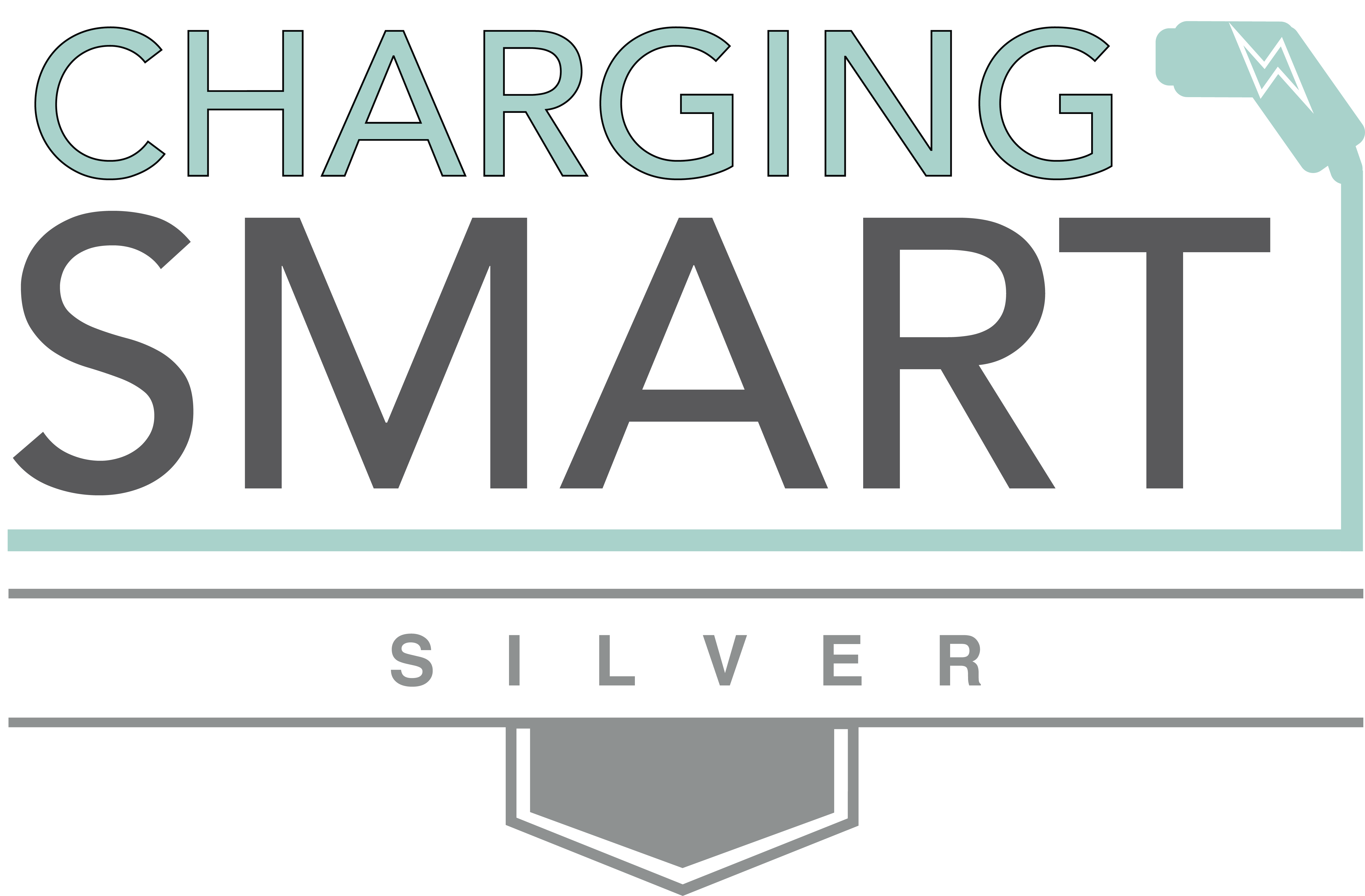Electric Vehicles

On This Page
Energy Security
Electricity is produced regionally or locally, which increases regional economic development, decreases reliance on imported fuels, and diversifies power sources for greater energy security. Learn more here.
Join our vision of the City of Ames as a leader in clean, convenient, and affordable transportation that is accessible to all and powered by locally sourced, clean, and renewable energy.
About 80% of charging happens at home. When you're on the go, you can use public charging options which continue to open across the country.
There are three main types of chargers that you will encounter: Level 1, Level 2, and Level 3 (also called DC Fast Charging):
-
Level 1 charging uses a standard 120V outlet that you are likely to find in your garage. This is the slowest type of charging and will add an average of 5 miles per hour of charge. Also called “trickle charging,” this type of charging is not offered commercially and is typically only used at home.
-
Level 2 charging requires a 240V outlet. These chargers can be installed in your home with a basic electrical upgrade and are very commonly used for public chargers. Level 2 chargers add 20 to 60 miles per hour of charge.
-
Level 3 chargers, or DC Fast Chargers, are only used in commercial settings. These chargers are most often found along highways since they provide 60 to 100 miles per 20 minutes of charge.
If you’re able to charge at home, that is likely the easiest and most affordable option. If not, the City is working to expand public charging opportunities, with a focus on providing more convenient, safe and affordable chargers near multi-unit dwellings and commercial centers. Many workplaces also offer EV chargers in company parking lots or garages, so don’t forget to check with your employer when considering your charging options.
At Home
Installing a level 2 charger in your garage or driveway is easy! Just follow these steps:
-
Select your equipment, ensuring it is compatible with your vehicle.
-
Find a contractor. This list of local contractors is solely for informational purposes, not for promotion. Let us know if your business installs EV chargers and would like to be added to the list.
Baldus Electric - (515) 232-5096
Jaspering Electric - (515) 232-4276
Kurrent Electric - (515) 292-1155
Nelson Electric - (515) 232-2445
-
Talk to your contractor about an electrical permit, they will typically obtain this for you. Permitting Guidelines for Electric Vehicle Charging Equipment(PDF, 140KB).
-
Install the charger.
-
Ames Electric customers can apply for a Smart Energy Rebate for 50% of the total cost, up to $500. Apply here
-
If you are a customer of another electric utility, some offer incentives:
-
Consider charging your EV with renewable energy! Explore options for installing solar or joining our community solar program.
For Public Use
Thank you for supporting the transition to electrified transportation! Here's how to install a public EV charger:
-
Select your equipment and installer. There are many vendors that manufacture, install, and/or manage EV charging stations. It is important to establish a service agreement before installation.
-
Check with your electric utility on power supply feasibility, and request a service installation. Charger feasibility and cost will vary depending on existing infrastructure, and level 3 charging may only be feasible in certain areas.
-
Ames Electric: 515-239-5170
-
Alliant Energy: 800-255-4268
-
Consumers Energy: 800-696-6552
-
Midland Power: 800-833-8876
-
A zoning permit and an electrical permit are required for commercial EV charger installations. Permitting Guidelines for Electric Vehicle Charging Equipment(PDF, 140KB).
-
Zoning permit application.
-
Apply for an electrical permit online.
-
Proceed with installing the charger. Consider notifying EV charging station databases like PlugShare and Google Maps to help people find your station.
-
Ames Electric customers can apply for a Smart Energy Rebate for 50% of total costs up to $2,500 per plug: Apply for a Smart Energy Rebate
-
Businesses and tax-exempt entities may be eligible for a federal incentive: Alternative Fuel Vehicle Refueling Property Credit

In July, 2025, the City of Ames was awarded Charging Smart Silver designation. Charging Smart is a Department of Energy Program that recognizes communities for achieving policies that facilitate the expansion of electric vehicles (EVs) and EV charging infrastructure.
As outlined in the Climate Action Plan, the City of Ames supports EV adoption by:
-
Offering rebates to Ames Electric customers who install EV charging
-
Installing public charging in the community.
-
Electrifying our municipal fleet, including light duty and heavy duty vehicles.
Learn more about our progress on the Climate Action Plan Dashboard.
Electric Vehicles (EVs) have three main types:
|
Battery Electric Vehicles (BEV) |
Plug-In Hybrid Electric Vehicles (PHEV) |
Hybrid Electric Vehicles (HEV) |
| Powered by |
A large battery that stores electric energy that powers the motor |
An internal combustion engine and electric motor using energy from a medium-sized battery. Some can travel over 40 miles on pure electric power before needing to burn fuel.
|
An internal combustion engine and electric motor using energy from a smaller battery; runs on conventional or alternative fuel. Limited electric-only range. |
| How to charge/fuel |
Plug into an electric power source |
Plug into an electric power source to charge the battery for maximum electric-only range; fill up at a gas station to refuel the gas tank.
|
Fill up at a gas station to refuel the gas tank. The battery is typically charged by the internal combustion engine working like a gas-powered generator, and by the electric motor recouping electricity while the car is slowing down.
|
| Vehicle Examples |
Nissan Leaf, Chevrolet Bolt, Tesla Model 3 |
Mitsubishi Outlander PHEV, Chrysler Pacifica Hybrid |
Toyota Prius |